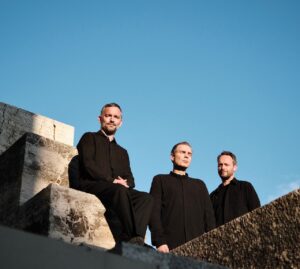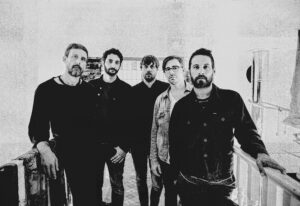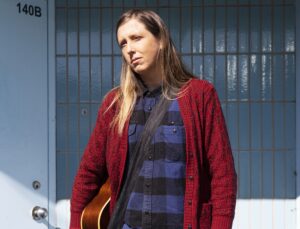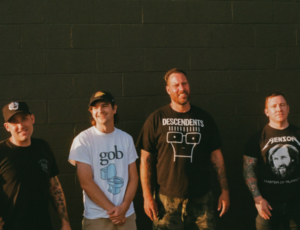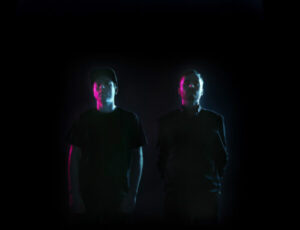Classical music concerts can be so boring. I love them, lest anybody misunderstand. But, after years of regular concert hall attendance, it’s hard not to become cynical. Classical is the only kind of music where the ensembles basically all play the same works. The really good ensembles are distinguished by playing that music more competently, and maybe a bit differently, than everybody else.
I’m not suggesting there’s anything wrong with that. Those old masterpieces still deserve to be heard, and they’re usually better live. But there’s something disheartening about listening to your city’s symphony orchestra playing a piece that you know fifteen or twenty other orchestras might be able to play better.
My point is this: classical music ensembles often lack singularity. Fans of other kinds of music know that when they go to a Kanye West concert, for example, they’re seeing the one and only Kanye West performing music that is uniquely his. That’s part of the experience, and it’s something that classical music audiences don’t have.
Enter the Kronos Quartet, on their steeds of brilliant white.
Violinist David Harrington formed the group in 1973, and it quickly established itself as the antidote to the staid, Haydn and Beethoven-saturated string quartet experience. Their raison d’être: to play and commission new music, and to push the string quartet into the uncharted territory of jazz, rock and global folk music.
Scrapping the classics might seem like a suicide mission in the string quartet business. Nonetheless, Kronos has become the most famous string quartet in the world – without Beethoven’s help. They’ve had an impossibly good thing going for forty years now.
They recently celebrated that milestone at The Chan Centre. Harrington and his longtime compatriots John Sherba (violin) and Hank Dutt (viola) were joined by this year’s new recruit, cellist Sunny Yang. Kronos performed a lively and diverse program full of music that I’d wager many in the audience hadn’t heard before. They also played one work that nobody in the world has ever heard before, and that was the real selling point of this anniversary concert: the world premiere of Philip Glass’ sixth string quartet.
The eminent minimalist (or whatever he is nowadays) has a connection to Kronos that dates back to the seventies. “I felt that I knew them in a very personal way,” said Glass, in conversation with CBC’s Eleanor Wachtel onstage before the concert. “And when I write for them now, I write a part for John, and a part for Hank. I write it for the person.”
Fans of classic, sunny Glass with his major arpeggios and propulsive rhythms may be in for a shock when they hear the new quartet. Dark and brooding in places, it demands your full attention. It is an utterly dominating presence in the room that it occupies. This is not the kind of Philip Glass that you can let wash over you; it grabs you by the brain and holds you hostage for half an hour.
“String Quartet No. 6” lacks the immediacy of Glass’ previous chamber music, but one gets the feeling that repeated listening will yield rewards. We’ll just have to wait for Kronos’ inevitable recording of the piece. By the time they get around to that, they will have worked out the new work’s kinks on the road. Saturday’s premiere sometimes sounded like exactly what it was: a very accomplished ensemble performing a very difficult work for the first time. They’re performing it twice more before the end of the month. They’ll get the hang of it.
The Glass premiere was the main event Saturday night, but many other moments on the program eclipsed it, musically. John Oswald, of Plunderphonics fame, wrote “Spectre” for a thousand overdubbed string players. When they play it in concert, the members of Kronos weave artfully in and out of the sound of their pre-recorded selves. Stephen Prutsman’s arrangement of “Evic Taksim”, by the Turkish master composer Tanburi Cemil Bey, featured the night’s best solo playing, courtesy of Hank Dutt on the viola. Serbian composer Aleksandra Vrebalov’s “…hold me neighbor, in this storm…” featured Harrington on the gusule and Sherba on the tapan. Their violins were amplified when they picked them back up, and the quartet sounded huge in The Chan’s beautiful acoustics.
The audience summoned the quartet back onstage for three encores, the last of which was their famous screeching-death-march rendition of Jimi Hendrix’s “Purple Haze”. It was ugly, brutal, noisy and unbelievably satisfying.
It’s worth noting that all of this novelty would be for naught if they couldn’t play. These guys could make Morse code sound like Mendelssohn.
Kronos’ program on Saturday provided several experiences you’d never have at anybody else’s concert. That’s why forty years of Kronos is cause for celebration. Many happy returns, Kronos. Preferably to Vancouver.



